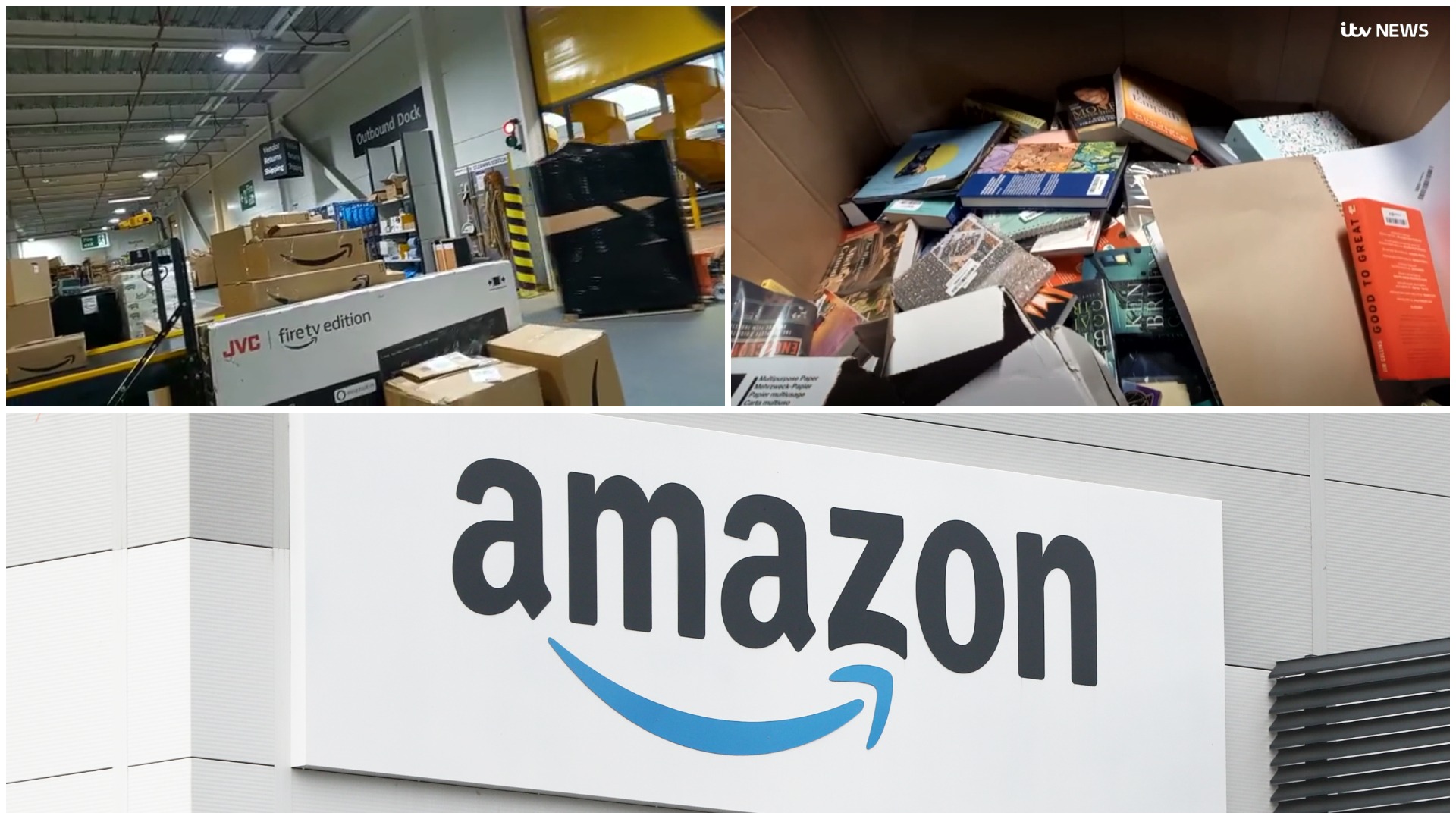I hate to say I wasn't exactly surprised when I saw this but seeing the video at the link below really put into perspective just how much stuff they're literally taking to landfills to get rid of. How do they not have a method in place to donate at least some of this? Maybe they do and this is just above and beyond that? Who knows... either way this is pretty damn bad and I imagine it's only gonna get worse as they continue to grow.
Undercover video and more at links below, along with Amazon's response, which in short is: ""We are working towards a goal of zero product disposal and our priority is to resell, donate to charitable organisations or recycle any unsold products. No items are sent to landfill in the UK. As a last resort, we will send items to energy recovery, but we're working hard to drive the number of times this happens down to zero."

 www.itv.com
www.itv.com
Undercover filming from inside Amazon's Dunfermline warehouse reveals the sheer scale of the waste: Smart TVs, laptops, drones, hairdryers, top of the range headphones, computer drives, books galore, thousands of sealed face masks – all sorted into boxes marked "destroy".
Products that were never sold, or returned by a customer. Almost all could have been redistributed to charities or those in need. Instead, they are thrown into vast bins, carried away by lorries (which we tracked), and dumped at either recycling centres or, worse, a landfill site.
An ex-employee, who asked for anonymity, told us: "From a Friday to a Friday our target was to generally destroy 130,000 items a week."I used to gasp. There's no rhyme or reason to what gets destroyed: Dyson fans, Hoovers, the occasional MacBook and iPad; the other day, 20,000 Covid (face) masks still in their wrappers.
In one week in April, a leaked document from inside the Dunfermline warehouse showed more than 124,000 items marked 'destroy'. To repeat, that's just for seven days. In contrast, just 28,000 items in the same period were labelled 'donate'.The same manager admitted to us that in some weeks, as many as 200,000 items could be marked 'destroy'.
Why are hundreds of thousands of products being destroyed in this way? The answer is Amazon's hugely successful business model. Many vendors choose to house their products in Amazon's vast warehouses.But the longer the goods remain unsold, the more a company is charged to store them. It is eventually cheaper to dispose of the goods, especially stock from overseas, than to continue storing the stock.
Undercover video and more at links below, along with Amazon's response, which in short is: ""We are working towards a goal of zero product disposal and our priority is to resell, donate to charitable organisations or recycle any unsold products. No items are sent to landfill in the UK. As a last resort, we will send items to energy recovery, but we're working hard to drive the number of times this happens down to zero."

Revealed: Amazon destroying millions of items of unsold stock in UK every year | ITV News
An ITV News investigation has uncovered the sheer scale of waste at one of Amazon's UK warehouses, with TVs and laptops among the items being thrown away. | ITV National News


